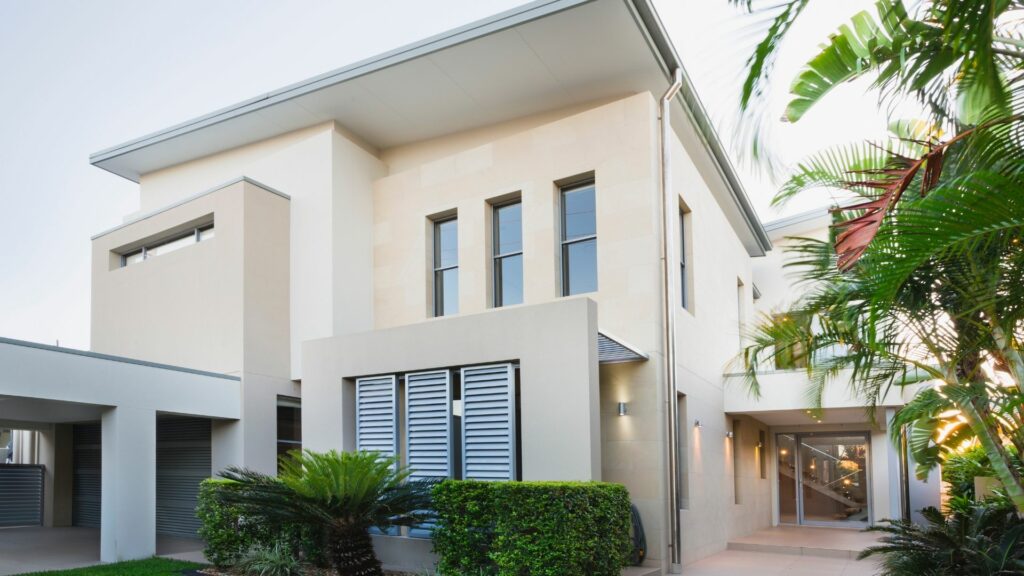To successfully manage an Airbnb remotely, however, it’s essential that you approach the business model with a knowledgeable strategy, proper planning, and the right mix of remote management tools. Before taking the leap into the world of remote hosting, ask yourself – and answer – these important questions:
How Will I Ensure Quality Control?
When you are not present to personally oversee or verify operations, vacation rental quality control can quickly become a challenge. Guest reviews and cleanliness ratings are vital contributors to your listing’s visibility and booking rates, so managing your Airbnb remotely requires assurance that the high standards you’ve set for your property are maintained – stay after stay.
Routine Inspections: Stay ahead of potential issues. Schedule regular inspections with a trusted local contact or a professional inspection service to ensure everything on your property remains in good working order. When planning how to run an Airbnb remotely, set a recurring schedule for routine inspections, whether monthly, quarterly, or seasonally. Collaborate with your local contact or the inspection service to synchronize your calendars, ensuring both parties are prepared and that the property is accessible for each inspection. Use digital calendar reminders or property management software to track inspection dates and be prepared to block those dates from your booking calendar.
Smart Home Technology: Invest in smart home solutions, like security cameras (in public areas respecting privacy) and sensors, to monitor property conditions and safety remotely. For instance, install smart thermostats like Nest or Ecobee to remotely control and monitor property temperatures, or utilize water leak detectors such as Honeywell’s Lyric to catch potential floods or leaks in real-time, thereby safeguarding your property – and your reputation as a responsible remote host – against potential damages and bad guest experiences. Learn more about Smart Home Tech for Airbnbs.

Detailed Checklists: Create comprehensive checklists for cleaning, maintenance, and guest preparations. Detailed checklists help you ensure quality and consistency, even in your absence. They support your on-the-ground teams by providing clear instructions on how you want your property to look and feel for each new guest. Also, step-by-step checklists become critical resources if and when your regular cleaning team isn’t available and someone unfamiliar with your property is responsible for the turnover and restaging.
- Cleaning: A great cleaning checklist involves all tasks – big and small – related to the tidiness and hygiene of the property. Your cleaning checklist should cover everything from the process for laundering linens to the restaging of bedrooms, kitchens, and consumables as well as general housekeeping duties. Here’s a universal turnover checklist to get you started. Use this as a baseline, adding specific instructions and property requirements that your cleaning team should know about and follow.
- Maintenance: A centralized maintenance checklist covers the ongoing upkeep of your property. When managing an Airbnb remotely, you need to track a variety of property requirements to ensure everything is in working order. Depending on the type and location of your property, your maintenance checklist could include items like lawn care, pool or hot tub maintenance, HVAC systems and filter replacement, annual appliance checks, and regular pest control, as well as general plumbing, electrical, and structural upkeep.
- Guest Preparations: Your property should be in guest-ready condition, each and every time a new guest walks through the door. A guest preparation checklist is developed specifically with the guest in mind and includes the details that make your property feel welcoming. Preparation tasks would involve leaving welcome notes or gifts, setting the thermostat, confirming electronics and remote controls work, and ensuring all necessary access keys or codes to property amenities like community parking, gym, pool, beach access, etc. are placed right where your guests expect to find them.
Management of Local Contractors: Do your homework when managing an Airbnb remotely. If you outsource property services like cleaning, maintenance, or landscaping, it’s important you choose reputable companies and contractors with proven track records.
- Source Vetted Pros: Seek recommendations from local property managers, other hosts, or online community forums. Additionally, always review testimonials, check for certifications or affiliations, and request references to ensure the vendor’s reliability, professionalism, and experience with vacation rentals as well as properties like yours.
- Share Your Expectations: Running an Airbnb remotely requires that you clearly communicate with all local pros who you engage or hire – cleaner, lawncare crew, cohost or property manager – about your quality standards and performance expectations. Periodically review this information based on guest feedback or property changes to make sure your on-the-ground resources stay updated and your vacation rental runs smoothly.
Guest Feedback Mechanisms: Encourage guests to provide feedback on their stay directly with you and to share insights into areas needing your attention. To facilitate helpful guest feedback, utilize post-stay surveys through platforms like SurveyMonkey or Google Forms and incorporate a feedback section in your guest checkout process. Making it easy for guests to share their thoughts with you can help keep potential issues or negative feedback private, allowing you to address concerns away from the limelight of public reviews. Regularly reviewing comments and ratings on your Airbnb listing will also provide valuable insights, as you can personally reach out to guests after their stay to inquire about their experience.
Who Will Be My Local Eyes and Ears?
Even with the best remote Airbnb management systems in place, there’s nothing like a trusted local contact to ease your mind and have in your back pocket in case of an emergency. Here are a few options for identifying and engaging an on-the-ground resource.
- Property Management Companies: Consider partnering with a reputable local property management company. They typically know how to run an Airbnb remotely and offer a variety of services, from in-person guest relations to maintenance management. Before finalizing any partnership, check the company’s reviews and reviews on Yelp or Google, and get references – ask to speak directly with other property owners who’ve used their services. Lastly, ensure any property management company you hire has proper licensing and maintains affiliations with local or national property management associations, which can attest to their professional standards and credibility.
- Hire a Local Caretaker: Employing a local caretaker can be a good option for certain remote Airbnb management functions. Having consistent on-the-ground oversight helps ensure your property stays guest-ready. As with any local contractor, it’s important that caretakers are well-trained on your standards and clearly understand your expectations and the property’s needs. Also, if a local caretaker is going to have in-person contact with your guests, be sure they are able to offer a warm, hospitable experience and respectfully serve as your proxy during face-to-face interactions.
- Regular Visits: If at all possible, schedule periodic visits to your vacation rental property. Managing an Airbnb remotely is definitely doable, but there’s no substitute for firsthand experience. Staying at your property for a few nights allows you to check on its condition and experience it like a guest. Are the beds comfortable? Does the HVAC work well? What improvements can you make for future guests? In addition, visiting the community provides an opportunity to build and maintain relationships with your local contacts.
Pro Tip: When considering the financials of running an Airbnb remotely, it’s important to forecast costs associated with your outsourced service providers, your travel expenses to visit the property, and the potential loss of booking revenue days throughout the year for regular inspections, deep cleans, and maintenance.

Will I be able to Detach Emotionally?
Being physically distant might aid objective decision-making. Without the entanglements of face-to-face interactions, some hosts find they can better focus on data-driven decisions. But, before you commit to managing your Airbnb remotely, be honest about whether you’ll be able to emotionally distance yourself and enjoy the benefits of remote management. Here are a few tips on how to run an Airbnb remotely without foregoing the personal touch you know guests appreciate.
- Personalized Communication: Even if you’re remote, you can still maintain a personal touch through your guest communications. Automated messages can be customized to your brand and written to sound warm and inviting, making your guests feel welcome from anywhere.
- Customized Welcome Packages: Set the stage for a wonderful first impression and positive guest experience. Hire your cleaning team or other on-the-ground resource to leave personalized notes or local gifts for guests. Small gestures can go a long way in making guests feel valued.
- Stay Emotionally Invested: While it’s essential to detach for objective decisions and to maintain a healthy balance between “doing” and “managing,” remember why you started hosting in the first place. Keeping that passion alive will naturally radiate throughout your guest interactions and your property.
What Systems Will Support Me?
From property management software to security systems, managing your Airbnb remotely will push you to rely on technology. But don’t worry, there are many user-friendly tools and systems available to help you. Define your needs, research the best options to meet those requirements, and plan your business to account for these costs. Here are a few tips for selecting technologies and systems to support the remote management of your Airbnb investment.
- Research and Reviews: Start by researching the top-rated property management, security software, and cleaning management platforms. Reviews can be invaluable in understanding the pros and cons of each tool.
- Trial Periods: Many platforms offer trial periods. Take advantage of these to test the system’s compatibility with your needs before making a final commitment.
- Integration Capabilities: Choose platforms that can easily integrate with other tools you might be using, ensuring seamless operations across all systems.
- Scalability: Opt for systems that can scale with your business. If you plan on adding more vacation rental properties in the future, you’ll want tools that can accommodate that growth.
- Ongoing Support: Ensure that the technology tools you choose offer robust customer support and assistance options. This is crucial, especially when you’re managing an Airbnb remotely and may need quick resolutions from afar.

How Will I Handle Time Zone Differences?
If you’re managing a vacation rental property from a different time zone, prompt communication with guests can become tricky. Remote hosting requires being prepared to adjust your schedule when necessary or find other ways to ensure timely and satisfactory responses to guest questions, concerns, or property emergencies.
- Automated Responses: Setting up automated responses for common questions will ensure guests receive immediate replies. These pre-programmed messages can address a variety of FAQs and let guests know when they can expect a more detailed response from you. Common topics include questions about check-in and check-out times, Wi-Fi access, parking details, local recommendations, or specifics about amenities such as coffee makers, hairdryers, or washing facilities. Addressing FAQs proactively with automated responses can reduce the back-and-forth and provide instant clarity to guests.
- Virtual Assistants: Consider hiring a virtual assistant who can work in the property’s time zone. They can serve as a direct-line resource for your guests and handle basic communications and inquiries during the hours you’re unavailable.
- Scheduled Availability: When managing an Airbnb remotely, it’s important to be clear and candid in your guest communications, particularly regarding your availability. At a minimum, you should provide guests with your availability in your initial and welcome communications. You may also choose to share your on-call hours in your property listing, setting guest expectations from the outset.
- Local Contact: An emergency situation may arise that requires a local resource such as a 24/7 plumbing service. Be prepared and have a local contact at the ready in the event there’s an urgent issue that cannot wait and must be handled in person.
How Will I Stay Connected to the Local Community?
Property regulations, local events, and market conditions change. And the most successful remote rental hosts are those who keep informed about things happening in the community. Staying updated can be easier than you may think – it simply requires a willingness to connect with and follow local community groups and resources.
- Subscribe to Local Newsletters: Many cities or regions offer newsletters or websites focused on real estate and local events. Subscribing to these sources can provide timely and valuable insights.
- Review Regulatory Websites: Regularly review local governmental websites and administrative offices that handle housing and short-term rental regulations to stay abreast of any legal proposals, timelines, and regulatory requirements.
- Join Local Online Communities: Platforms like Facebook and social forums have groups dedicated to Airbnb hosts or property managers in specific areas. Connecting with other hosts in your property’s area can offer a direct line to emerging trends, challenges, or opportunities. These can be gold mines for running an Airbnb remotely filled with local information and peer advice.
- Market Analysis Tools: Consider investing in market analysis tools or services like AirDNA or Mashvisor that provide real-time insights into property rental performance in specific regions.
Remote Airbnb management offers both personal and professional advantages, but it’s not a decision to be taken lightly. With a bit of introspection and a willingness to address several important business and operational questions, you can confidently decide if running an Airbnb remotely aligns with your capabilities and hosting goals. By applying a thoughtful approach and gathering the right mix of tools and resources, you can build a successful hosting business, whether near or far.







